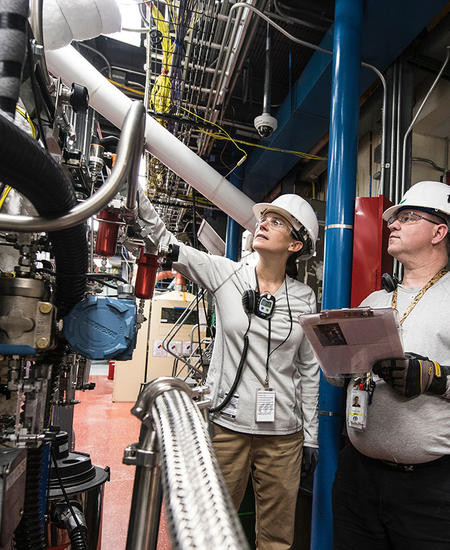By Jenny Wells-Hosley
Manufacturing has fueled the economic success of Kentucky for over two centuries, and a new collaborative partnership will help position the Commonwealth for even more success in the years to come.
The Kentucky National Science Foundation's (NSF) EPSCoR, or Established Program to Stimulate Competitive Research, has awarded the University of Kentucky, the University of Louisville and six other institutions across the state a five-year, $24 million grant to support the fundamental science needed to advance next generation manufacturing technologies, flexible electronics and robotics. The grant will also support the development of a greater STEM-literate workforce.
"This cooperative project will help bolster Kentucky's economy, create jobs and put the Commonwealth at the forefront of automation and human-machine interaction," said UofL president Neeli Bendapudi and UK president Eli Capilouto, in a joint statement. "Kentucky is at its best when our brightest minds are working together to answer our toughest questions. We are dreaming boldly, so that we might achieve greatly, and we can't wait to see what this group will accomplish."
The project, titled the Kentucky Advanced Partnership for Enhanced Robotics and Structures (or KAMPERS), will harness the collective research power of 40 multidisciplinary researchers from the eight Kentucky universities and colleges, which include UK, UofL, Eastern Kentucky University (EKU), Kentucky State University (KSU), Morehead State University (MSU), Somerset Community College, Transylvania University (TU) and Western Kentucky University (WKU). Each of these institutions has developed niche areas of expertise to become leaders in next-generation manufacturing technologies.
The research results will have applications in the construction of components for robotic and autonomous systems in areas as diverse as elder care, home service, health care, education and other collaborative human-robot interactions.
"This (grant) pulls people together and allows Kentucky to jump into a leadership position — that doesn't exist without this investment," said Seth DeBolt, professor in the UK Department of Horticulture and co-investigator on the project. "We've got UK, the flagship, land-grant university; we've got a dynamic metro university, UofL; we have regional universities throughout the state; and we have a really good community and technical college system. We're partnering with every one of those institutions in this effort and that's what's really incredible about this because we have to build intellectual infrastructure that's going to last generations."
